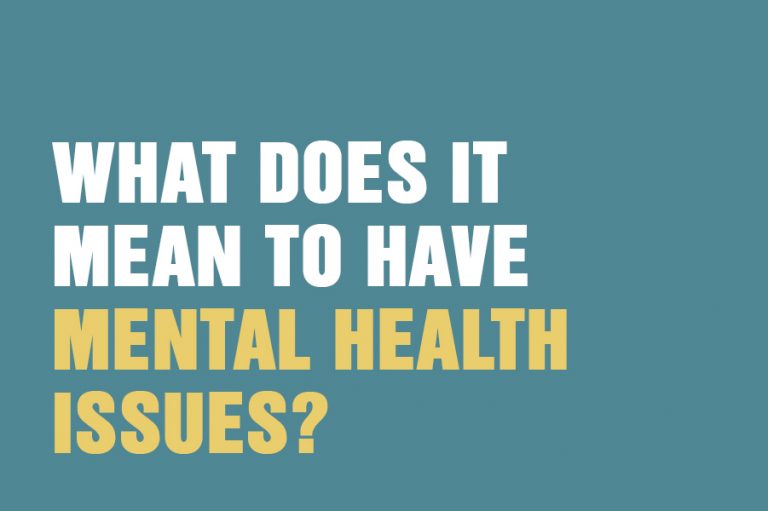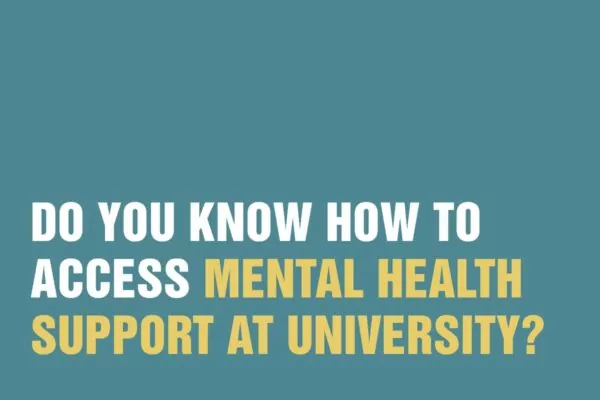Mental health is hitting the headlines way more than it used to. Celebrities and royals are coming out and saying they have experienced mental health issues, and high-profile campaigns are urging people not to attach a stigma to mental health but to open up and talk about it.
Princes William and Harry have publicly spoken about their difficulties coming to terms with their mother Princess Diana’s death 20 years ago – and urge others not to hold it all in. Singer Zayn Malik and Oscar-winning actress Emma Stone have admitted they suffer from anxiety. Rapper Stormzy and singer Lady Gaga are open about having suffered from depression.
It is estimated that one in four people will suffer mental health issues at any one time. Yet the term ‘mental health’ covers such a wide spectrum: anything from mild stress to bipolar disorder can fall into the mental health bracket.
To have mental health issues means to have a disorder that affects the way you think, the way you feel, and/or the way you behave. They can be caused by a reaction to life events, or can be dependent on the blend of chemicals in the brain. As with any condition, there is a spectrum from mild to severe. To have a mental illness means that the condition affects everyday functioning and meets criteria set out in the DSM-V, the manual psychiatrists use to diagnose their patients. Here are some of the most common forms of mental health issues.
Types of mental health issues
Depression
Statistics from the World Health Organisation show that depression is the biggest cause of disability worldwide. Depression is a mood disorder that can range from low mood in winter (seasonal affective disorder) right up to bipolar disorder (manic depression). Symptoms of depression include feelings of hopelessness, despair, guilt, low mood, worthlessness, fatigue and pessimism.
With mild depression, people can mostly continue their everyday lives, often supported with antidepressants and therapy. On the severe end of depression people may not even be able to get out of bed and may be hospitalised.
Anxiety
Anxiety is when you worry a lot, especially about the future, accompanied by a feeling of unease or dread. Symptoms of generalised anxiety disorder include restlessness, sleep disturbance, fear, irritability, feeling on edge, and difficulty concentrating. There can also be physical symptoms of trembling hands, sweating, and headaches. Anxiety is said to be caused by continued exposure to stressful situations, and it can also run in the family. Anxiety can range from worrying too much up to more severe issues such as obsessive-compulsive disorder (OCD) and post-traumatic stress disorder (PTSD).
Personality disorders
The DSM-V diagnostic manual says that a personality disorder is when the person has distorted thoughts or feelings about themselves and others, and an impairment in how they relate to others. This may lead to odd or worrying behaviours. Types of personality disorder include borderline personality disorder (also called emotionally unstable personality disorder), obsessive-compulsive personality disorder, and narcissistic personality disorder. You can read more detail about these conditions here.
More severe psychiatric disorders
The more severe end of mental health issues includes conditions such as schizophrenia (where the person hears voices) and bipolar disorder (manic depression). People at this severe end of the spectrum are unlikely to be able to function in day-to-day life, and are more likely to be on medication under the care of a psychiatrist.
If you are concerned about your mental health then the first step is to speak to your GP. Depending on the severity, you may be prescribed medication, or the GP may suggest that you try therapy. If you’re at the stage where you feel you would like therapeutic support with anxiety, depression or other mental health issues, then call us and we will match you with a therapist who can help. Our number is 020 8673 4545 and our email is [email protected].







